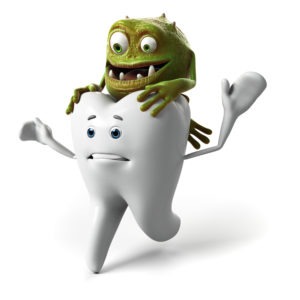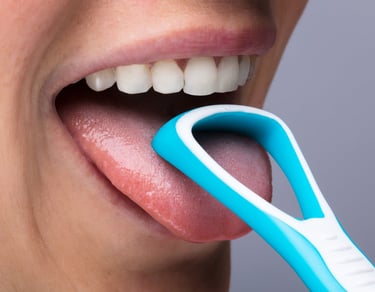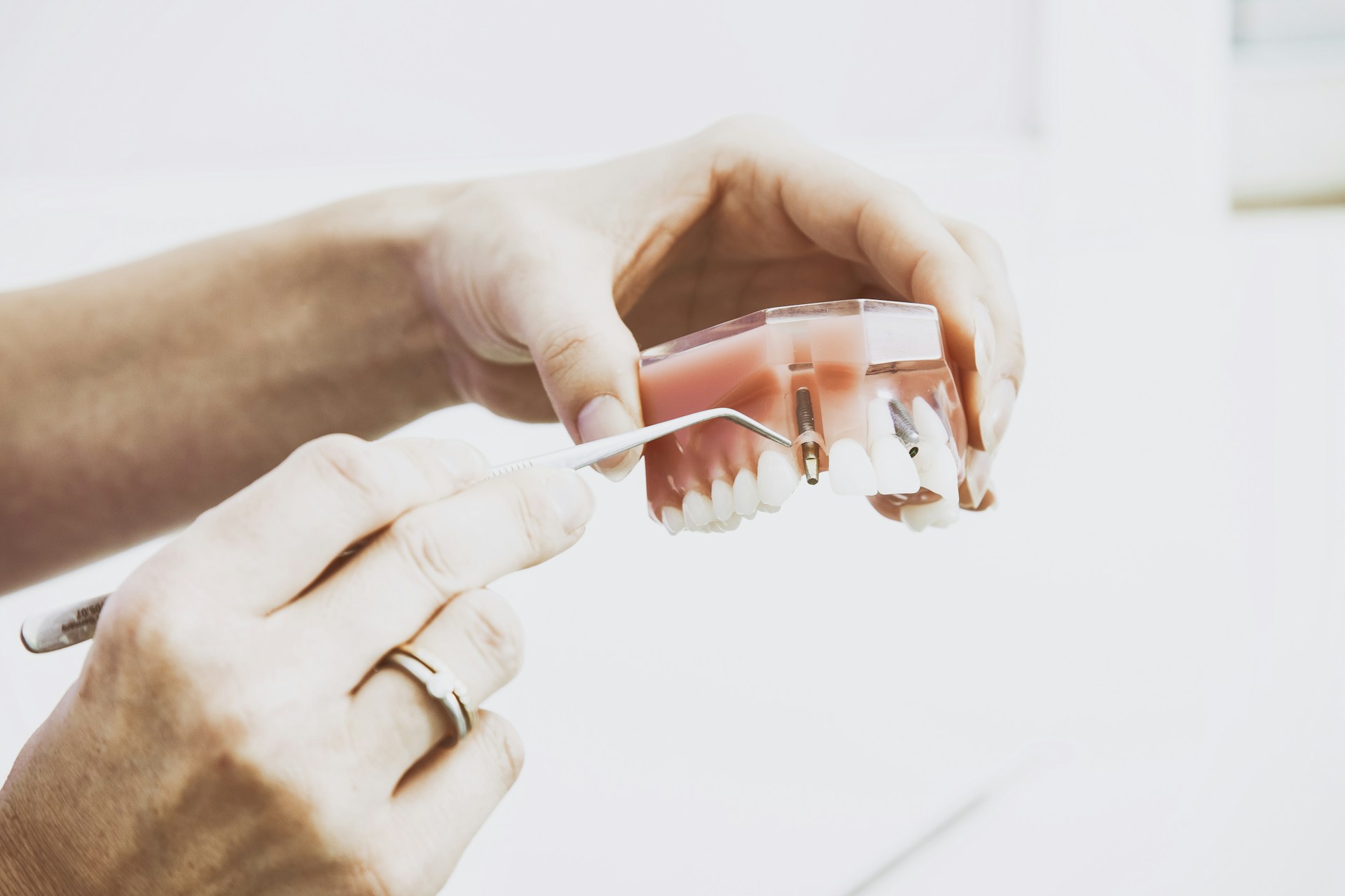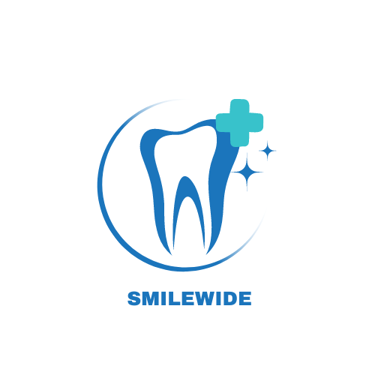SMILE- It costs nothing !!!
The Importance of Brushing Tongue for Oral Hygiene | Freshen Breath
3/4/2024


Brushing your teeth is a well-known and established part of our daily oral hygiene routine.
We all know that brushing helps to keep our teeth clean and healthy, preventing cavities and gum diseases.
But have you ever wondered if you should also be brushing your tongue?
If so, then scroll through the blog where we will explore the importance of brushing your teeth and tongue, and why it is crucial for maintaining good oral health.
Do I Need to Clean My Tongue?
Let's start by understanding why brushing your teeth is so important.
Our mouths are a breeding ground for bacteria, and when we eat, these bacteria feed on the leftover food particles in our mouth.
Over time, if these food particles are not removed, they can form a sticky film called plaque.
Plaque is not only unsightly, but it also produces acids that can damage our tooth enamel, leading to cavities.
To know more about dental plaque read on UNDERSTANDING DENTAL PLAQUE
By brushing our teeth, we remove the plaque and bacteria, preventing the buildup of tartar, which is a hardened form of plaque.
Tartar is very difficult to remove by normal brushing and can only be removed by a dental professional and can contribute to gum disease if left untreated.
Brushing your teeth twice a day, using a fluoride toothpaste, helps to remove plaque, prevent cavities, and maintain good oral health.
Why Brushing Your Tongue is Important
Now, let's move on to the often overlooked part of our oral hygiene routine - brushing our tongue.
The surface of our tongue is covered in tiny bumps called papillae, and these bumps can trap bacteria, food particles, and dead skin cells.
This buildup of bacteria on the tongue can contribute to bad breath, also known as halitosis.
By brushing your tongue, you can remove the bacteria and debris that accumulate on its surface.
This not only helps to freshen your breath but also promotes overall oral health.
Bacteria on the tongue can also transfer to your teeth and gums, increasing the risk of cavities and gum disease.
Therefore, incorporating tongue brushing into your daily routine is essential for maintaining good oral hygiene.
How to Brush Your Teeth and Tongue Properly
Now that we understand the importance of both brushing our teeth and tongue, let's talk about how to do it properly.
1. Choose the right toothbrush: Opt for a soft-bristled toothbrush that can effectively clean your teeth without damaging your gums.
Electric toothbrushes are also a good option as they provide a thorough cleaning.
2. Use fluoride toothpaste: Fluoride helps to strengthen your tooth enamel and protect against cavities.
Apply a pea-sized amount of toothpaste on your toothbrush.
3. Brush your teeth: Hold your toothbrush at a 45-degree angle to your gums and brush in a gentle, circular motion.
Make sure to brush all surfaces of your teeth, including the front, back, and chewing surfaces. Spend at least two minutes brushing your teeth.
4. Brush your tongue: After brushing your teeth, gently brush your tongue from back to front.
You can use your toothbrush or a tongue scraper for this purpose. Rinse your mouth thoroughly after brushing your tongue.
5. Don't forget to floss: Brushing alone cannot remove all the plaque and food particles between your teeth.
Therefore, it is important to floss at least once a day to clean those hard-to-reach areas.
Cleaning tongue with tongue scraper
The process of using a tongue scraper is straightforward. Start by rinsing the scraper under running water to ensure cleanliness.
Then, gently place the scraper at the back of your tongue and drag it forward, applying light pressure.
Repeat this motion several times, rinsing the scraper between each pass.
Be mindful not to apply too much pressure or scrape too aggressively, as this can cause discomfort or even damage the delicate tissues of your tongue.
Aim for a gentle but thorough cleaning motion to effectively remove buildup without causing irritation.
After scraping, rinse your mouth thoroughly with water to remove any loosened debris.
You can also follow up with mouthwash or a gentle oral rinse for added freshness.
Additional Tips for Good Oral Hygiene
Aside from brushing your teeth and tongue, there are a few other tips that can help maintain good oral hygiene:
1. Limit sugary and acidic foods: Sugary and acidic foods can contribute to tooth decay.
Limit your intake of these foods and make sure to brush your teeth afterward.
2. Visit your dentist regularly: Regular dental check-ups are essential for detecting any oral health issues early on and preventing them from worsening.
3. Drink plenty of water: Water helps to rinse away bacteria and food particles in your mouth.
It also promotes saliva production, which is important for maintaining oral health.
4. Replace your toothbrush regularly: Toothbrushes wear out over time and can harbor bacteria.
Replace your toothbrush every three to four months or sooner if the bristles become fray
In conclusion, whether to brush your tongue or not is not a personal preference but a crucial step in maintaining good oral health.
By brushing your teeth, you remove plaque, prevent cavities, and keep your gums healthy.
Similarly, brushing your tongue helps to eliminate bacteria, and reduce the risk of dental issues.
In addition to that, it freshens the breath and prevents halitosis, which is a major problem for many.
Remember to brush your teeth and tongue properly, and incorporate other good oral hygiene practices into your routine for optimal oral health.





Contact Smiles
drdeepi15@gmail.com
Dr. Deepika B.D.S
© 2025 SmileWide Dental. All Rights Reserved.
Have doubts ..?
